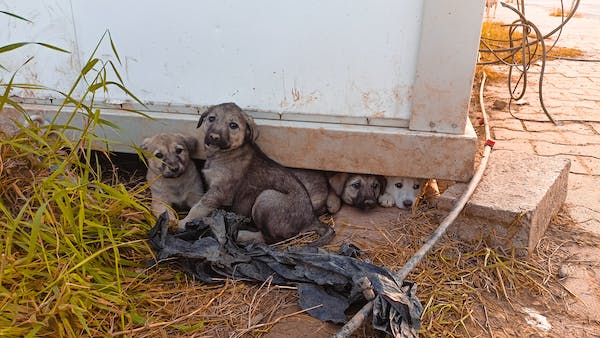As human beings, we have a moral obligation to treat all living creatures with kindness and respect. From the tiniest insect to the majestic elephant, every animal deserves to be treated ethically and with compassion. Unfortunately, many people still view animals as mere resources for food or entertainment without considering their inherent value as sentient beings. That’s why it’s important to nurture our compassion and respect for all creatures through animal ethics. In this blog post, we will explore what animal ethics is all about and how it can help us become better stewards of the planet and its inhabitants. So buckle up and let’s dive into this exciting topic!
Introduction to Animal Ethics
Animal ethics is a branch of philosophy that considers the moral status of animals. It asks questions such as: What are the moral obligations we have towards animals? Should we treat them with compassion and respect? How should we balance the interests of animals against the interests of humans?
There is no one answer to these questions, and different people will have different opinions. However, there are some general principles that can guide our thinking about animal ethics. First, we should consider the interests of all creatures involved, not just humans. Second, we should treat animals with compassion and respect. And third, we should try to strike a balance between the interests of animals and humans.
Reasons Why We Need to Respect Animals
1. Animals are living, feeling beings just like us and deserve to be treated with respect.
2. Animals are capable of experiencing a wide range of emotions, from joy and love to fear and pain, and we need to take their welfare into account.
3. Animals play an important role in our ecosystems and are essential for the health of our planet – we need to respect them in order to protect our own environment.
4. factory farming and other cruel practices cause immense suffering for animals, so respecting their rights is vital in order to reduce animal suffering in the world.
5. By showing compassion towards animals, we can set a positive example for others and help create a more humane world for all creatures.
Laws and Policies That Protect Animals
There are laws and policies in place to protect animals from abuse and exploitation. The Animal Welfare Act is a federal law that sets standards for the care and use of animals in research, exhibition, transport, and by dealers. The U.S. Department of Agriculture (USDA) enforces the Animal Welfare Act through inspections of facilities that use or sell animals, and by investigating complaints of animal cruelty.
The Humane Slaughter Act is a federal law that requires that livestock be stunned before they are slaughtered. This law is designed to reduce the suffering of animals during slaughter. The USDA enforces the Humane Slaughter Act through regulations and inspections of slaughterhouses.
The Endangered Species Act is a federal law that protects endangered and threatened species of plants and animals from extinction. The U.S. Fish and Wildlife Service enforces the Endangered Species Act by regulating commerce in endangered species, and by working with landowners to conserve habitat for endangered species.
These are just some of the laws and policies that protect animals from abuse and exploitation. There are many others at the state and local level. These laws and policies show our commitment to protecting the welfare of animals, and to respecting their rights as sentient beings.
Animal Cruelty and How to Help
Animal cruelty is a pressing global issue that needs to be addressed. There are many ways to help prevent animal cruelty, and it starts with each individual. By raising awareness and taking action, we can make a difference for animals all over the world.
Here are some things you can do to help prevent animal cruelty:
1. Speak out against animal cruelty when you see it happening. Whether it’s witnessing abuse at a farm or seeing a neighbor’s dog chained up in the yard, don’t stay silent. Let the perpetrator know that what they’re doing is wrong and that you won’t tolerate it.
2. Educate yourself and others about animal welfare issues. The more people are aware of the problems animals face, the more likely they are to take action to help prevent cruelty. Share articles, watch documentaries, and start conversations with others about this important issue.
3. Support organizations that work to end animal cruelty. Many charities and nonprofits work tirelessly to rescue animals from abusive situations and fight for stricter laws to protect them from harm. Consider making a donation or volunteering your time to help these organizations in their efforts.
4. Be a responsible pet owner yourself. Show your furry friends the love and care they deserve by providing them with proper food, shelter, exercise, and veterinary care. Never abandon or neglect your pets – they rely on you for their well-being!
Examples of Companies Fostering Compassion for Animals
There are many examples of companies that are fostering compassion for animals. One example is the food company, Whole Foods. Whole Foods has a strict animal welfare policy in place that requires all suppliers to adhere to humane animal treatment standards. The company also offers a wide variety of vegan and vegetarian options for customers who do not want to consume animal products.
Another example is the fashion company, Zara. Zara has recently released a line of vegan leather shoes and bags. The company has also committed to stop using angora wool in their garments after an undercover investigation revealed that rabbits were being cruelly tortured in Chinese angora farms.
These are just a few examples of the many companies out there that are making an effort to be more compassionate towards animals. As consumers become more aware of the issues surrounding animal welfare, it is likely that we will see even more businesses make similar commitments in the future.
How to Raise Children with Compassion for Animals
It is never too early to start teaching your children about compassion for animals. As a parent, you can set the tone for how your family feels about and interacts with animals. Here are some tips on how to raise children with compassion for animals:
-Teach them to be kind and gentle to animals. This includes not pulling tails or harming insects.
-Encourage them to learn about different animal species and their individual needs. Reading books or going to the zoo together are great ways to do this.
-Lead by example! If you are kind and respectful to animals, your children will likely follow suit.
-Talk about how all creatures have feelings and should be treated with respect. This will help them understand why it’s important to be compassionate towards animals.
– Help them get involved in animal welfare or rescue efforts. This can be as simple as volunteering at a local shelter or donating food and toys to a wildlife rehabilitation center.
Conclusion
Animal ethics is an important issue that deserves our attention. We must recognize and respect the rights of all creatures, regardless of how big or small they may be. By nurturing compassion for animals and being mindful of our actions towards them, we can create a more ethical society in which animal welfare is respected and valued. This will not only benefit animals but also ourselves as human beings who share this planet with them.










